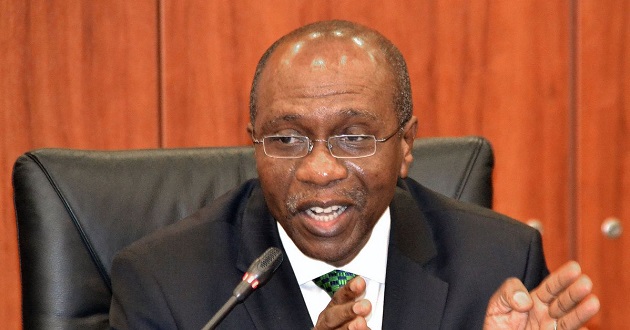Business
Federally collected revenue rose by 8.9% in third quarter – CBN

The Central Bank of Nigeria (CBN), has said that the nation’s federally collected revenue for the third quarter of this year rose by 8.9 per cent to N2.52tn in comparison to the previous quarter.
The apex bank disclosed this in its economic report for the third quarter of 2018 released on Monday.
CBN said in the report: “Federally collected revenue, at N2.52tn, in the third quarter of 2018, was 24 per cent lower than the proportionate budget estimate, but was 8.9 per cent above the receipts in the preceding quarter.
“The development, relative to budget estimate, was due to the shortfall in receipts from both oil and non-oil revenue in the review quarter. Federal Government estimated retained revenue and total expenditure were N950.61bn and N1.05tn, respectively, resulting in an estimated deficit of N100.33bn in the third quarter of 2018.”
According to the CBN, it maintained a non-expansionary monetary policy stance in August 2018, aimed at further curbing inflationary pressure.
The bank also said that broad money supply, on quarter-on-quarter basis, fell by 2.4 per cent to N33.6tn at the end of August 2018, in contrast to the growth of two per cent at the end of June.
The report said further: “The development reflected, mainly, the 3.4 per cent decrease in domestic credit (net) of the banking system. Over the level at end-December 2017, broad money supply grew by 7.9 per cent, due to 18.6 per cent and 6.2 per cent increase in foreign assets (net) and other assets (net) of the banking system, respectively.
Read also: TOUGH TIMES: FG cuts 2019 revenue projection for agencies by N223.3bn
“On quarter-on-quarter basis, narrow money supply fell by 6.9 per cent, due to 2.3 per cent and 7.7 per cent decrease in its currency outside banks and demand deposits components, respectively.”
The CBN however said that developments in banks’ deposit rates were mixed, while lending rates trended downwards in the quarter under review.
“With the exception of the one-month and 12-months deposit rates, which rose by 0.28 and 0.07 percentage point to 9.12 per cent and 10.07 per cent, respectively, all other deposit rates of various maturities fell from a range 3.75 – 10.67 per cent to 3.65 – 9.85 per cent at end-September 2018.
“The average savings rate remained unchanged at 4.07 per cent, same as at the end of the second quarter of 2018, while the average term deposit rate fell by 0.20 percentage points to 8.52 per cent at end of the review quarter.
“The average prime and maximum lending rates declined by 0.46 percentage point and 0.48 percentage point to 16.70 per cent and 30.95 per cent, respectively.”
Join the conversation
Support Ripples Nigeria, hold up solutions journalism
Balanced, fearless journalism driven by data comes at huge financial costs.
As a media platform, we hold leadership accountable and will not trade the right to press freedom and free speech for a piece of cake.
If you like what we do, and are ready to uphold solutions journalism, kindly donate to the Ripples Nigeria cause.
Your support would help to ensure that citizens and institutions continue to have free access to credible and reliable information for societal development.






















